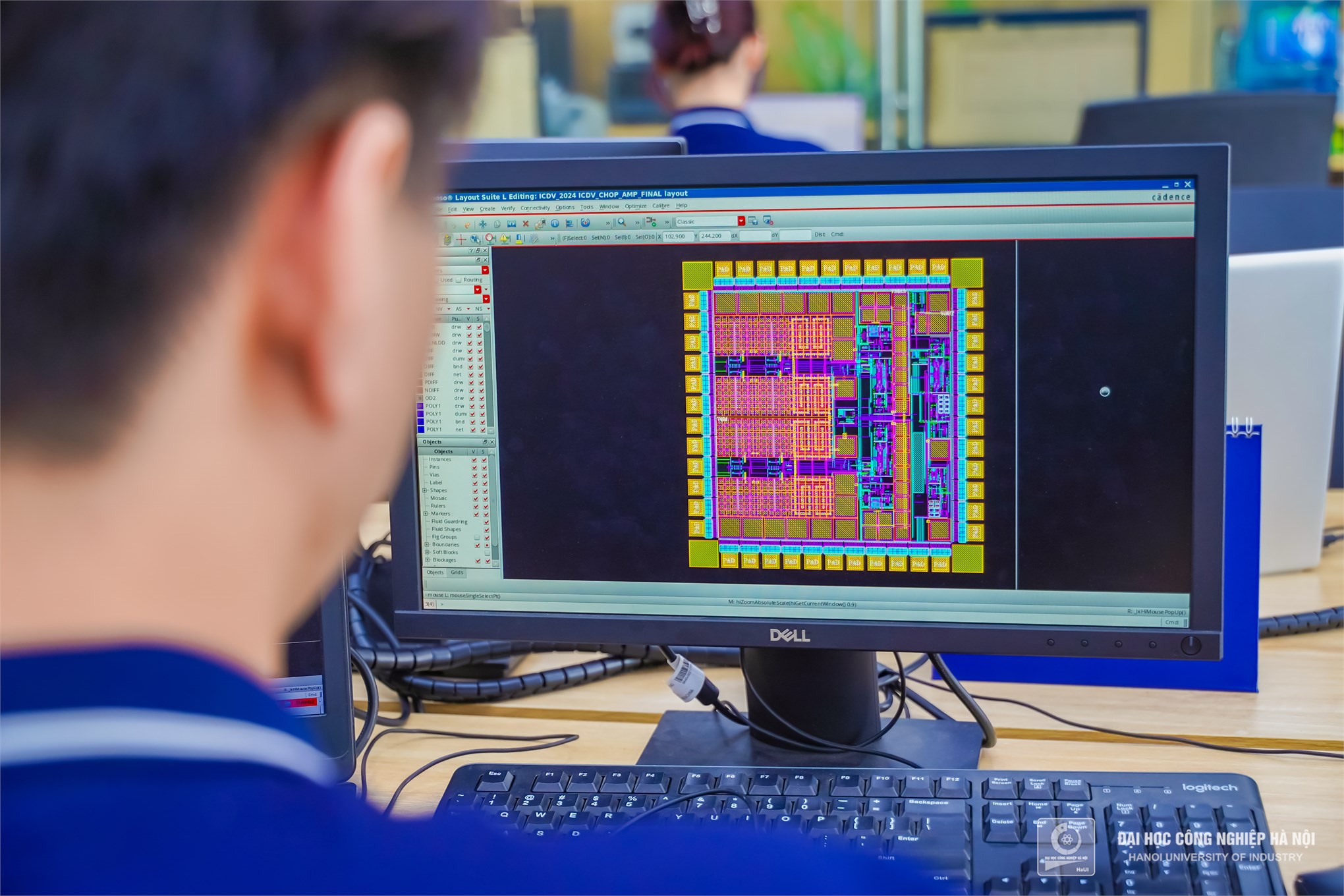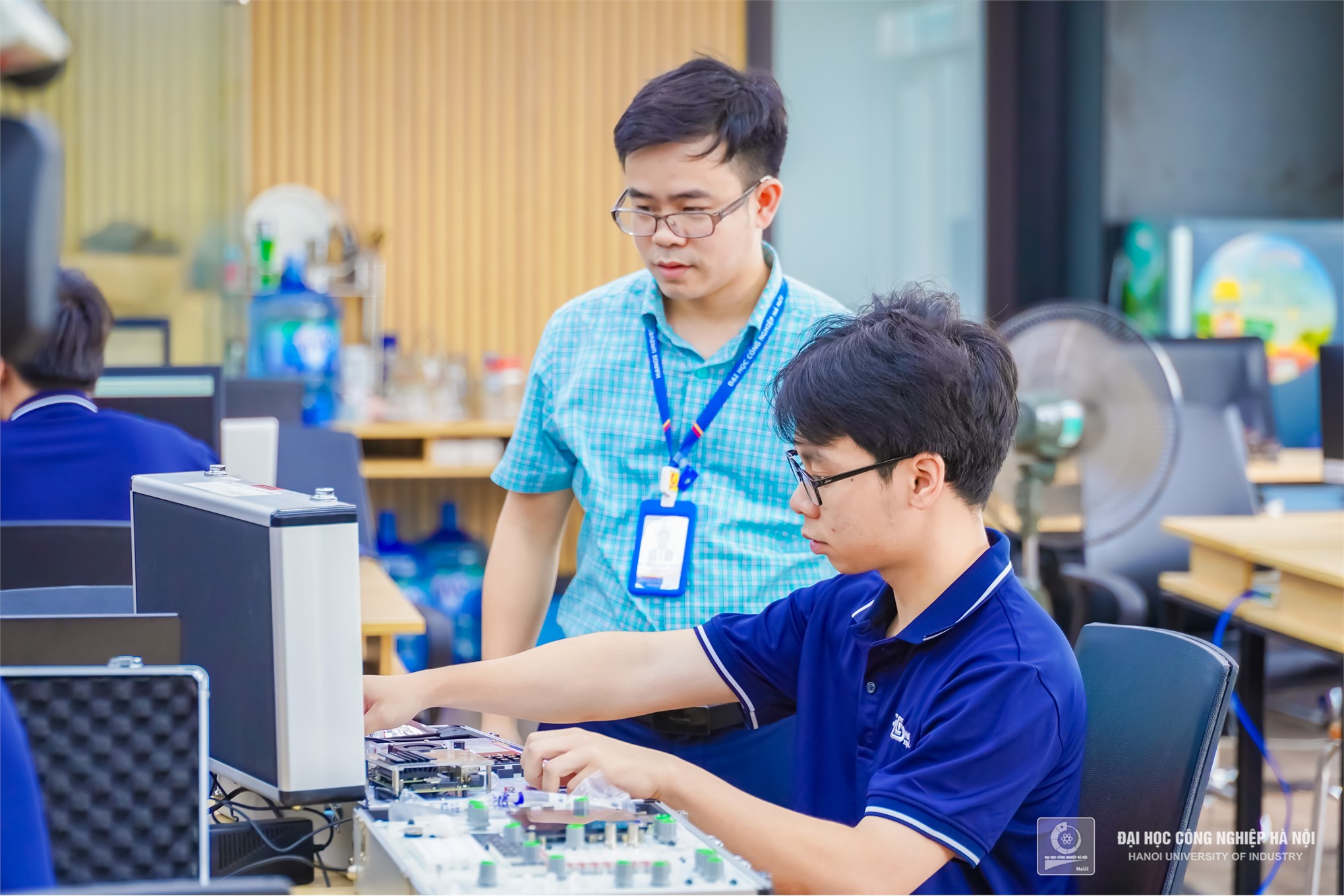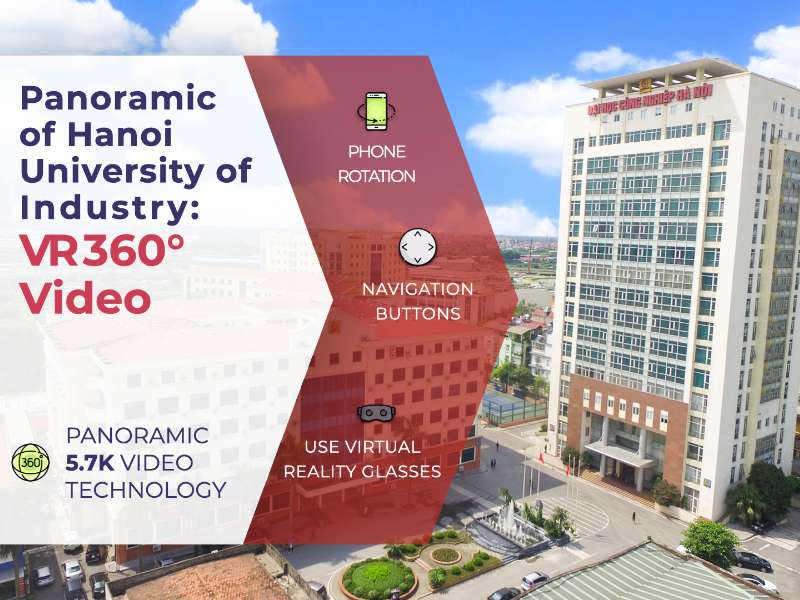Biomedical Electronics Technology - A Leading training program in the Digital Technology Era
To meet the demand for workforce in this field, Hanoi University of Industry has been enrolling students in the undergraduate program in Biomedical Electronics Technology since 2023, gradually addressing the labor market needs in the context of the digital era and the Fourth Industrial Revolution.
Leading the Digital Age Trend
In the context of Fourth Industrial Revolution, there is a significant demand for skilled professionals in the field of Electronics and Telecommunications. These professionals are expected to possess capabilities in designing, manufacturing, programming control systems, operating, and maintaining smart electronic systems and the Internet of Things (IoT) networks. There is a particularly high demand for those who can apply electronics in healthcare and medical fields.

Many students are interested in Biomedical Electronics Technology program at the Career Counseling Day in High Schools in 2024
Currently, many hospitals are seeking highly qualified biomedical electronics technicians to support effective diagnosis and treatment. Students studying Biomedical Electronics Technology at Hanoi University of Industry will receive training focused on design, hardware manufacturing, and control programming for electronic systems, particularly those used in medical applications, based on knowledge of medical electronic equipment.
Interdisciplinary training program in accordance with international standards
Biomedical Electronics Technology is an interdisciplinary field that combines electronic technology and medical science, playing a crucial role in developing advanced devices and systems for diagnosis, treatment, monitoring, and managing human health.


Students practice and access new technologies in modern labs with highly qualified, experienced faculty in teaching, practical applications, and scientific research
Hanoi University of Industry's Biomedical Electronics Technology program is designed with a CDIO approach aiming to meet ABET and AUN-QA quality standards. The program includes three main areas:
Biomedical Signal Processing: Analyzing biological signals such as ECG and EEG; extracting diagnostic and disease-monitoring information; remote health monitoring systems; automatic diagnostic devices; early detection methods for pathological signs; digital signal processing; real-time biomedical signal recognition and analysis.
Biomedical Electronic Devices: Designing and developing biomedical electronic devices such as blood pressure monitors, X-ray machines, electromyography devices; knowledge of biosensors, electronic circuits, embedded systems; interaction between devices and the body; implantable devices, mobile health monitoring; personal treatment support systems.
Biomedical Application IC Design: Designing specialized ICs for biomedical applications; developing ICs for biomedical signal processing and medical device systems; electronic circuit design and simulation techniques; optimizing energy consumption and system integration; biomedical measurement devices and automated medical control systems; intelligent specialized chips.
The Biomedical Electronics Technology program provides students with a solid foundation of knowledge and essential professional skills to engage in modern medical technology. Students will learn how to develop and apply advanced devices and systems, making significant contributions to improving healthcare quality and human life.
Career Opportunities
In the future, the demand for biomedical electronic engineering professionals is expected to grow significantly, offering diverse job positions with attractive salaries and vast development opportunities.

With solid skills and knowledge, graduates will be capable of working in various professional fields such as healthcare, medical institutions, research organizations, electronics manufacturing and service providers, public administrative organizations, defense and security sectors. They can develop solutions for designing, technical services, and management in the fields of Electronics and Biomedical Electronics; and have the professional skills to work in an international environment.

















































